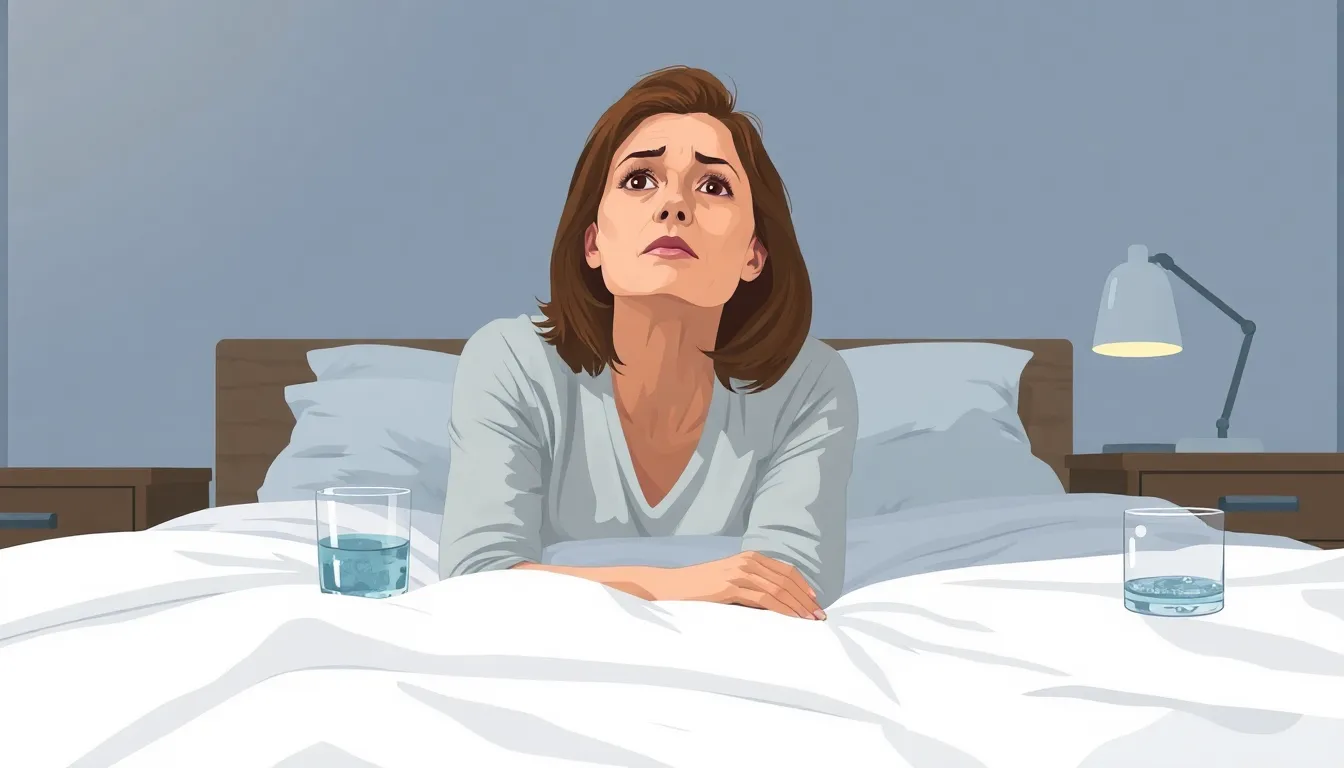Table of Contents
ToggleEver tried to catch some Z’s only to be serenaded by a symphony of crackling sounds when you breathe? You’re not alone. Many people experience this peculiar phenomenon while lying down, and it can turn a peaceful night into a puzzling mystery. Is it your body auditioning for a sound effects role in a horror movie? Or could it be something more serious?
Understanding the reasons behind that crackling sound can help ease your mind and maybe even give you a chuckle or two. From harmless causes like fluid in the lungs to more serious conditions, knowing what’s going on can make all the difference. So, let’s dive into the world of nighttime crackles and discover whether you should be reaching for the phone or just enjoying the show.
Overview of Crackling Sound When Breathing Lying Down
Crackling sounds during breathing while lying down may arise from several underlying causes. Fluid accumulation in the lungs often leads to these sounds, specifically due to conditions like pneumonia or congestive heart failure. In these instances, the crackling noise results from air bubbles moving through the fluid in the airways.
Respiratory conditions can also contribute to crackling sounds. Asthma and bronchitis often cause wheezing or crackling due to inflammation and mucus in the airways. Individuals with allergies may experience similar issues, as allergens can irritate the airways and provoke the same sounds.
Positioning affects breathing as well. Lying flat can change the distribution of air in the lungs, which may exacerbate existing conditions or create temporary crackling sounds. Propping up with pillows often alleviates discomfort and minimizes these sounds during breathing.
Certain lifestyle factors also play a role. Smoking can damage lung tissue and lead to both acute and chronic respiratory symptoms, including crackling sounds. Air quality, exposure to pollutants, or respiratory infections may similarly contribute to these occurrences.
Understanding the context behind the sounds is essential. While crackling may indicate benign issues, it can also signal more serious health concerns. Therefore, consulting a healthcare professional for an accurate assessment becomes important, especially if symptoms worsen or persist.
Common Causes

Crackling sounds during breathing while lying down can arise from multiple factors. Understanding these causes can help individuals recognize when to seek medical advice.
Respiratory Infections
Respiratory infections such as pneumonia and bronchitis often lead to crackling sounds. Pneumonia causes fluid accumulation in the lungs, which generates a characteristic sound as air moves through the fluid. Bronchitis, characterized by airway inflammation and increased mucus production, can also contribute to this phenomenon. Individuals experiencing cough, fever, or shortness of breath should consider these infections as potential culprits. Timely medical attention for respiratory infections can significantly improve recovery and alleviate symptoms.
Allergies and Asthma
Allergies and asthma commonly trigger crackling sounds in the lungs. Allergic reactions may cause increased mucus production, resulting in abnormal breathing noises. Asthma leads to airway constriction with inflammation, contributing to the crackling sound upon exhalation. Both conditions can worsen at night or when lying flat, potentially impacting sleep quality. Seeking appropriate treatment for allergies or asthma can reduce respiratory symptoms and improve overall well-being.
Other Possible Conditions
Crackling sounds while breathing may signal various health issues. Understanding these conditions provides insight into potential risks.
Pneumonia
Pneumonia is a leading cause of crackling sounds in the lungs. This infection causes fluid to accumulate in the air sacs, resulting in characteristic sounds as air traverses the fluid. Symptoms often include cough, fever, and difficulty breathing. Individuals experiencing these signs should seek immediate medical attention, especially if worsening occurs. Confirmatory tests such as chest X-rays or sputum analysis typically assist in diagnosis. Early treatment usually consists of antibiotics or antiviral medications, depending on the pneumonia type.
Heart Failure
Heart failure impacts lung function, often leading to crackling sounds during respiration. In this condition, the heart struggles to pump blood efficiently, which can lead to fluid buildup in the lungs. Symptoms may include shortness of breath, fatigue, and swollen legs. Individuals with these symptoms often experience increased discomfort while lying down. Diagnosis involves physical examination, imaging studies, and blood tests. Treatment mainly focuses on managing symptoms through medications, lifestyle changes, and, in severe cases, surgical interventions. Monitoring symptoms closely enhances overall health management.
Diagnosis and Evaluation
Evaluating crackling sounds during breathing while lying down involves a thorough assessment. Recognizing these sounds plays a significant role in determining potential health concerns.
Medical History Review
A detailed medical history review begins with the healthcare provider asking about existing health conditions. Allergies, asthma, and respiratory infections often come into focus. Symptoms experienced, duration, and frequency of crackling sounds are also key factors. Medications currently taken may provide clues regarding underlying conditions or side effects. Other lifestyle elements such as smoking habits and exposure to allergens warrant consideration. This comprehensive approach helps identify patterns that may indicate specific respiratory issues or other health problems.
Diagnostic Tests
Diagnostic tests provide essential information about lung function and possible causes of crackling sounds. A chest X-ray is commonly utilized to detect fluid accumulation or infections like pneumonia. Pulmonary function tests assess breathing efficiency and airway constriction. In some cases, a CT scan offers a more detailed view of lung structures. Sputum tests can determine infections or inflammation by analyzing mucus. Healthcare providers may also recommend blood tests to investigate potential underlying conditions contributing to symptoms. Comprehensive evaluation ensures appropriate diagnosis and treatment.
When to Seek Medical Attention
Understanding when to seek medical attention can greatly impact health outcomes. Individuals experiencing crackling sounds while breathing may need to monitor their symptoms closely. If these sounds accompany a persistent cough or fever, contacting a healthcare professional is advisable. Timely intervention becomes crucial in cases of increasing shortness of breath or fatigue, especially when lying down.
A sudden onset of crackling noises might indicate a worsening condition, such as pneumonia or heart failure. Pneumonia often involves additional symptoms, including chest pain and difficulty breathing. Symptoms like these warrant immediate medical evaluation. Heart failure may also become more evident with increased fluid buildup, causing noticeable changes in breathing patterns.
Allergy sufferers or those with asthma should note any changes in their condition. If crackling sounds worsen during the night or when lying flat, it may signal an exacerbation that requires prompt attention. Consulting a healthcare professional helps ensure proper diagnosis and management of these conditions.
Diagnostic tests play a vital role in determining the underlying cause of crackling sounds. Chest X-rays, pulmonary function tests, and blood tests help identify potential issues. Utilizing these diagnostic tools allows for a comprehensive understanding of the patient’s health status.
Proactive engagement with healthcare providers promotes better health management. Individuals who are unsure about their symptoms should err on the side of caution and seek medical advice. Recognizing early warning signs can lead to effective treatment and improved quality of life.
Crackling sounds during breathing while lying down can be concerning but understanding their potential causes is essential. While many instances are linked to harmless factors like allergies or asthma, others may indicate more serious conditions such as pneumonia or heart failure.
Individuals experiencing these sounds should monitor their symptoms closely. If accompanied by a cough fever or increased shortness of breath seeking medical attention is crucial. Recognizing the context of these sounds promotes proactive health management and can lead to timely interventions that enhance overall well-being. Awareness and prompt action can make a significant difference in addressing any underlying health issues.





